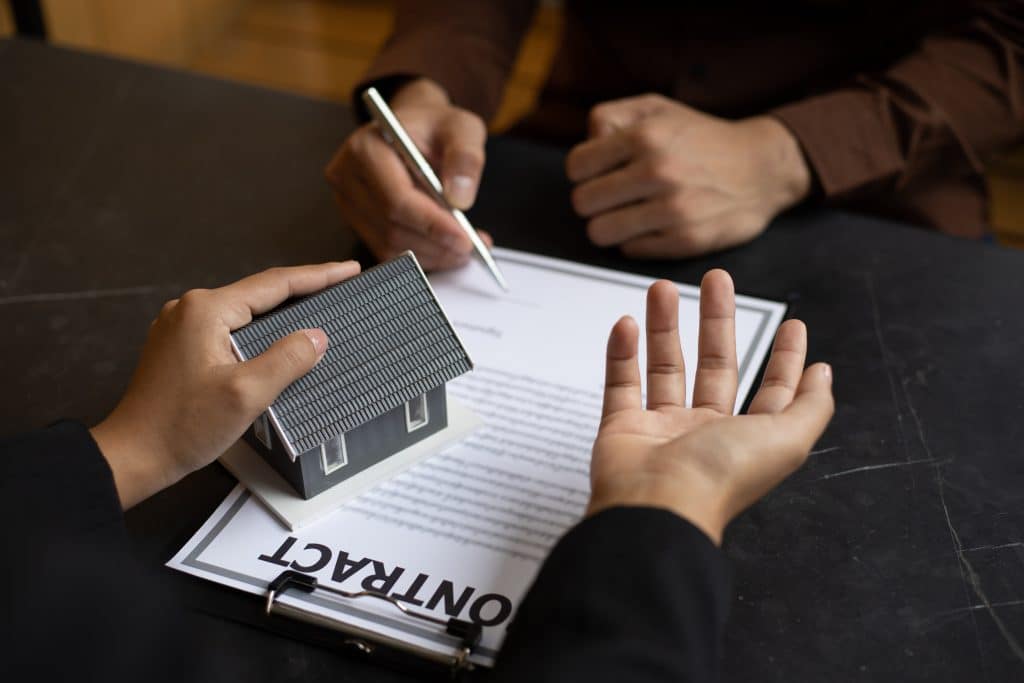Practical and Responsible Step
Our Cohabitation Agreements are professional, comprehensive, and valid in court if you ever require them to be. Making a Cohabitation Agreement is a practical and responsible step for cohabiting couples to take. It can help to prevent misunderstandings or confusion from causing cohabitation disputes later down the line if you ever split up, saving both parties a lot of hassle, stress, and heartache.
Cohabitation Agreements FAQ's
-
A Cohabitation Agreement is a written agreement used to define and set out the financial arrangements of cohabiting couples who live together but are not married or registered civil partners.
The agreement outlines how assets and liabilities would be divided if the couple decided to split up, to protect each party and prevent disputes from arising in the future.
Cohabitation Agreements are also sometimes referred to as Living Together Agreements or No-Nup Agreements.
The contents of a Cohabitation Agreement are usually quite comprehensive and help to clarify a broad range of different responsibilities and financial entitlements as agreed by the couple.
Some areas that may be covered in a Cohabitation Agreement include:
- Ownership of property, and the parties’ assets
- What each party is going to pay towards the mortgage repayments
- How household bills are to be dealt with and any other financial issues
- Whether the parties intend to make a will and if so what gifts and legacies may be in that will
- Arrangements for the care of any children
- How pensions will be split
- How liabilities will be split if you break up
- Next of kin rights in the event of a medical emergency
- Who cares for pets if the parties break up
Cohabitation Agreements can also be made for a specific term and have provisions dealing with when the agreement should be reviewed.
Once complete, the agreement should be revisited and updated periodically and whenever there are any major changes to your lives together.
-
A Cohabitation Agreement can provide peace of mind in your relationship. By coming to an agreement before or whilst you are living together you will: –
- Have a clear understanding of what your financial commitments are.
- Avoid misunderstandings regarding your rights and responsibilities as you continue to live together, in particular about ownership of property.
- Avoid difficulties and disagreements if you split up.
- Have clear evidence of your intentions should you have to go to court.
-
There is nothing to stop you from searching for a template for a Cohabitation Agreement online and writing your own agreement together with your partner.
However, for your agreement to be valid in court, both parties named in the agreement will usually be required to have received independent legal advice at the time that the contract was written.
An effective Cohabitation Agreement should also be tailored to you and your partner’s circumstances, so a template agreement may miss something important that you are not aware of. It is also possible that you could make an error writing your own agreement which results in it not being valid in court, defeating the point of writing it in the first place.
When you use the Cohabitation Agreement services of a specialist law firm, like our team here at Freeman Jones Solicitors, you have peace of mind that the agreement will be comprehensive and cover everything you require it to. You can also be confident that it will be free of errors and will be valid in court should you ever need it to be, thus saving you a lot of time, money, and hassle.
-
If you and your partner decide to make a Cohabitation Agreement, you should first seek the help of a law firm that specialises in cohabitation rights and law.
Our team of specialist solicitors here at Freeman Jones Solicitors in Chester has helped numerous cohabiting couples to protect their assets and future with a professional Cohabitation Agreement.
Once you have contacted our team, you will need to gather information and documentation about both parties’ assets and earnings. You will then need to discuss how you wish to manage and split your assets and earnings both now and in the future if you were to split up.
Your solicitor will ask you questions about your property, whether either of you has any children, and the financial contributions you both make to ensure that your Cohabitation Agreement includes all the relevant information.
Once the agreement is complete, you will both need to be witnessed signing it.
-
Yes, so long as it is properly affected. For the agreement to be valid it must: –
- Have been entered into it freely and voluntarily
- Be in the form of a deed
- Be signed by each person
- Be kept up to date for major life changes, for example, new children or property
- Both parties must also have sought independent legal advice on the agreement
Although Cohabitation Agreements are not legally binding, in the event of a later dispute with your partner, the information contained within the agreement will be highly persuasive as evidence of both parties’ intentions so long as the above elements have been satisfied.
-
A Cohabitation Agreement can be made at any point in a relationship.
Major life events that may prompt cohabiting couples to make an agreement include:
- Buying property together
- Having a child together
- One party becomes seriously ill
- Moving in together
Creating a Cohabitation Agreement requires cohabiting couples to have important conversations about the ownership structure of any property and assets they have. This can give both parties peace of mind that their interests are protected.
-
The cost of a Cohabitation Agreement depends on how complex your living arrangements are going to be and how much detail you want to include.
Here at Freeman Jones Solicitors, our specialist team can advise the cost once we know the nature and extent of the intended provisions, however, most agreements cost between £750 – £1500 plus VAT (£900.00 to£1,800.00) depending on the complexity of the agreement.
Although this may seem expensive, it is a lot cheaper than battling out disputes in court later.
-
Many unmarried couples believe that if they live together (cohabit) for long enough, they will acquire similar legal rights to those of a married couple and that they will become what is colloquially referred to as a ‘common law wife or husband’ and will be entitled to come support or to share their property after they split up. Unfortunately, this is not the case. In England and Wales, there is no such thing as a common-law spouse, and cohabiting couples do not automatically gain any legal rights to each other’s assets just because they live together, even if they do so for many years.
-
Yes, a Cohabitation Agreement can be modified once it has been created and our Cohabitation Agreement Solicitors would recommend that it is updated if your relationship changes or anything significant happens. The key reasons to update the agreement are as follows: –
- New children are born.
- One party becomes seriously ill.
- Assets change such as receiving a large inheritance or selling a property.
- You plan on getting married or entering a civil partnership.
What people say

Cohabitation Agreements: How we can help?
Unmarried cohabiting families are the fastest-growing type of family in the UK. However, English law does not recognise in any meaningful way a living-together relationship outside of marriage or civil partnership and therefore when a cohabiting relationship breaks down there is very little protection for the parties involved.
When married couples divorce or civil partners break up, both parties have a legal right to maintenance and their share of assets. Under martial law, all the circumstances and history of the relationship are considered to decide on a fair division. However, cohabiting couples have no such rights, regardless of the number of years they have been together. This area of law is very complex, and disputes can be very expensive to resolve. It is sensible, therefore, to try and agree in advance with your partner on what should happen to your money and any property you own if you split up.
A method of ensuring that things do not get messy when a relationship breaks down is by entering into a Cohabitation Agreement. This agreement sets out what your property interests are at this point in your relationship and what you both intend to happen if the relationship ends. This can be entered into at any time when you live together, or even before you start to do so. Cohabitation Agreements can be particularly useful when one partner purchases a property into which both people move, or when children are born.
If you’re ready to discuss creating a Cohabitation Agreement, give our team of solicitors here at Freeman Jones Solicitors in Chester a call on 01244 506 444.

Book Your Free, No-Obligation 20-Minute Consultation Today!
"*" indicates required fields



